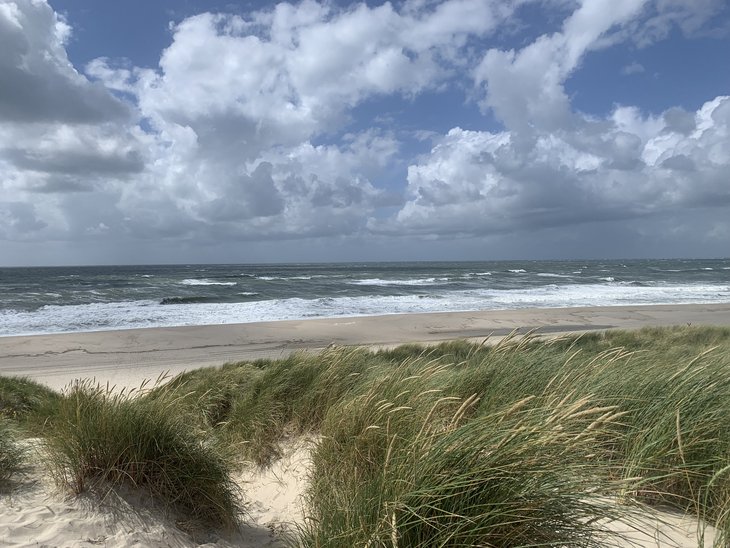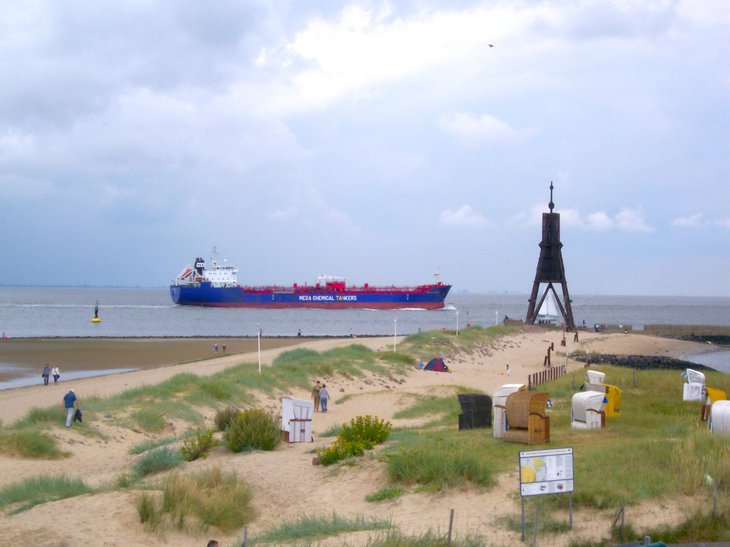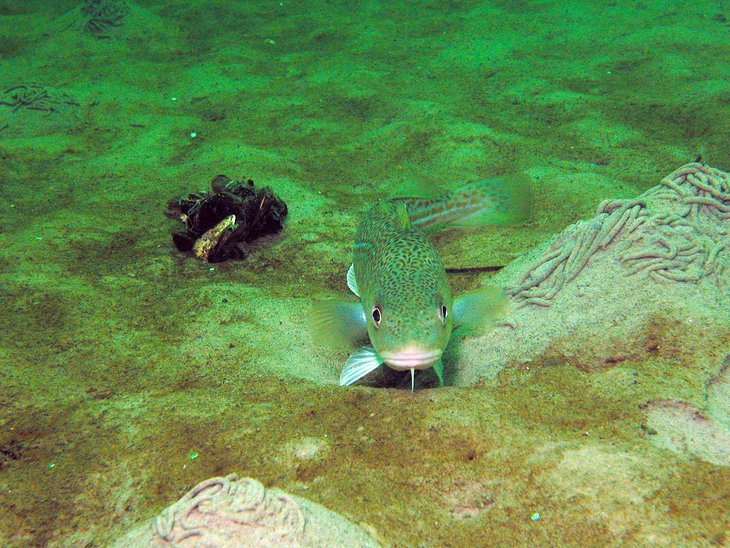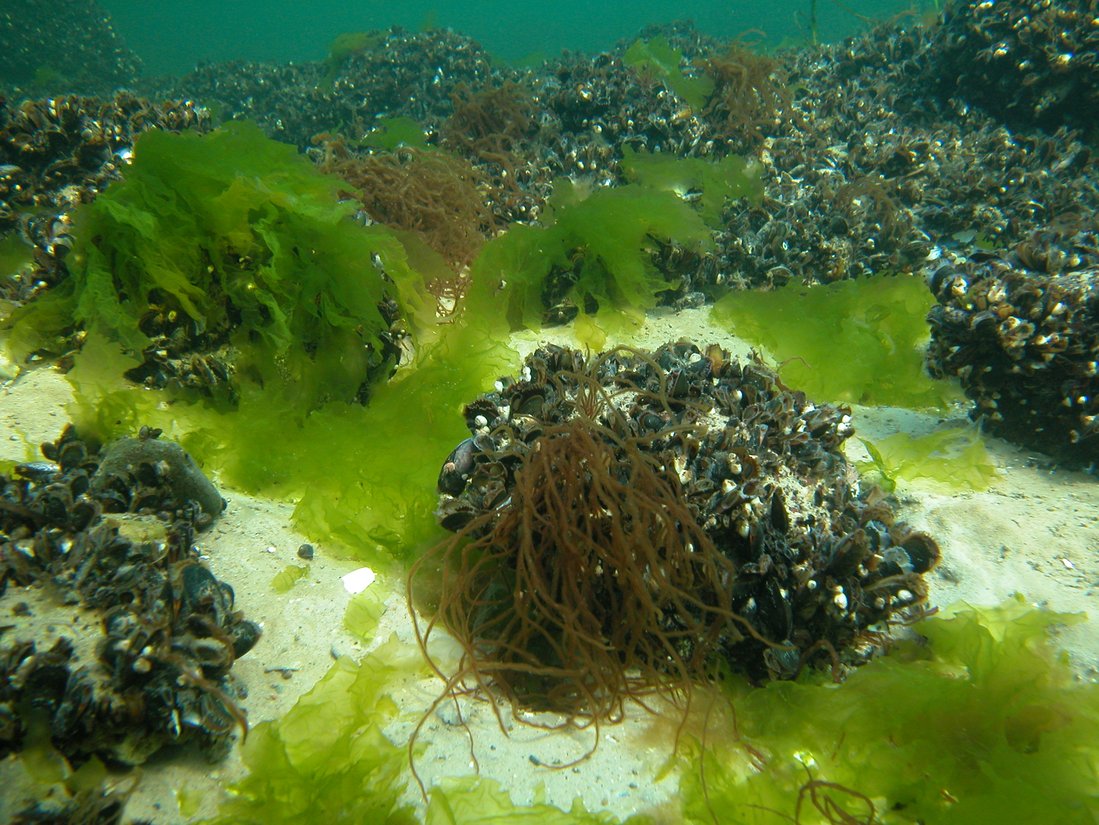The North Sea and the Baltic Sea are popular holiday destinations that offer recreation, nature experiences and leisure fun. At the same time, they are busy shipping routes, fishing grounds, space for aquaculture, a source for removal of oil, gas and sand. Lately, there is an increasing trend to use both seas as sites for offshore wind farms and as storage areas for man-made carbon dioxide. Additionally, the North Sea, the Baltic Sea and the coastal areas accomondate a unique diversity of organisms and ecosystems. Marine ecosystem services are the essential basis for human well-being and utilisation requirements.
Changes due to climate change and offshore wind energy
Climate change as well as the planned expansion of offshore energy production will lead to significant changes in the North and in the Baltic Sea in the upcoming years. Therefore, science-based marine management is necessary to harmonise effective measures to protect nature and preserve biodiversity with competing demands of industry, fishing and tourism.
Key regulations include European agreements, national marine spatial plans for the German exclusive economic zones of the North Sea and the Baltic Sea as well as regulations for the coastal regions of the northern German federal states. The different sets of regulations have in common that they must be well interlinked to be effective because ocean currents ensure a permanent and cross-border exchange of water masses, organisms, pollutants and nutrients. In addition, the oceans also interact with rivers, the atmosphere and the land, thus, agriculture and air pollution for example also have an impact on the North and the Baltic Sea.
How effective are marine protected areas?
Almost 45 per cent of the German North Sea and the Baltic Sea are designated protected areas. These include three Wadden Sea national parks in the North Sea, two national parks in the coastal waters of Mecklenburg-Western Pomerania, six nature reserves in the German Exclusive Economic Zone (EEZ - at a distance of 12 to a maximum of 200 nautical miles off the coast) and other Natura 2000 protected areas in coastal waters. The latter are marine areas that are part of an EU-wide network of protected areas.
All assessments of the status and of potential changes to the biotic communities in the marine protected areas of the North Sea and the Baltic Sea are based on the European Marine Strategy Framework Directive (MSFD). The MSFD is an overall framework aiming for a good environmental status of all European Seas by 2020. However, the associated action plan has been implented very slowly in recent years. The good environmental status has not been achieved yet.
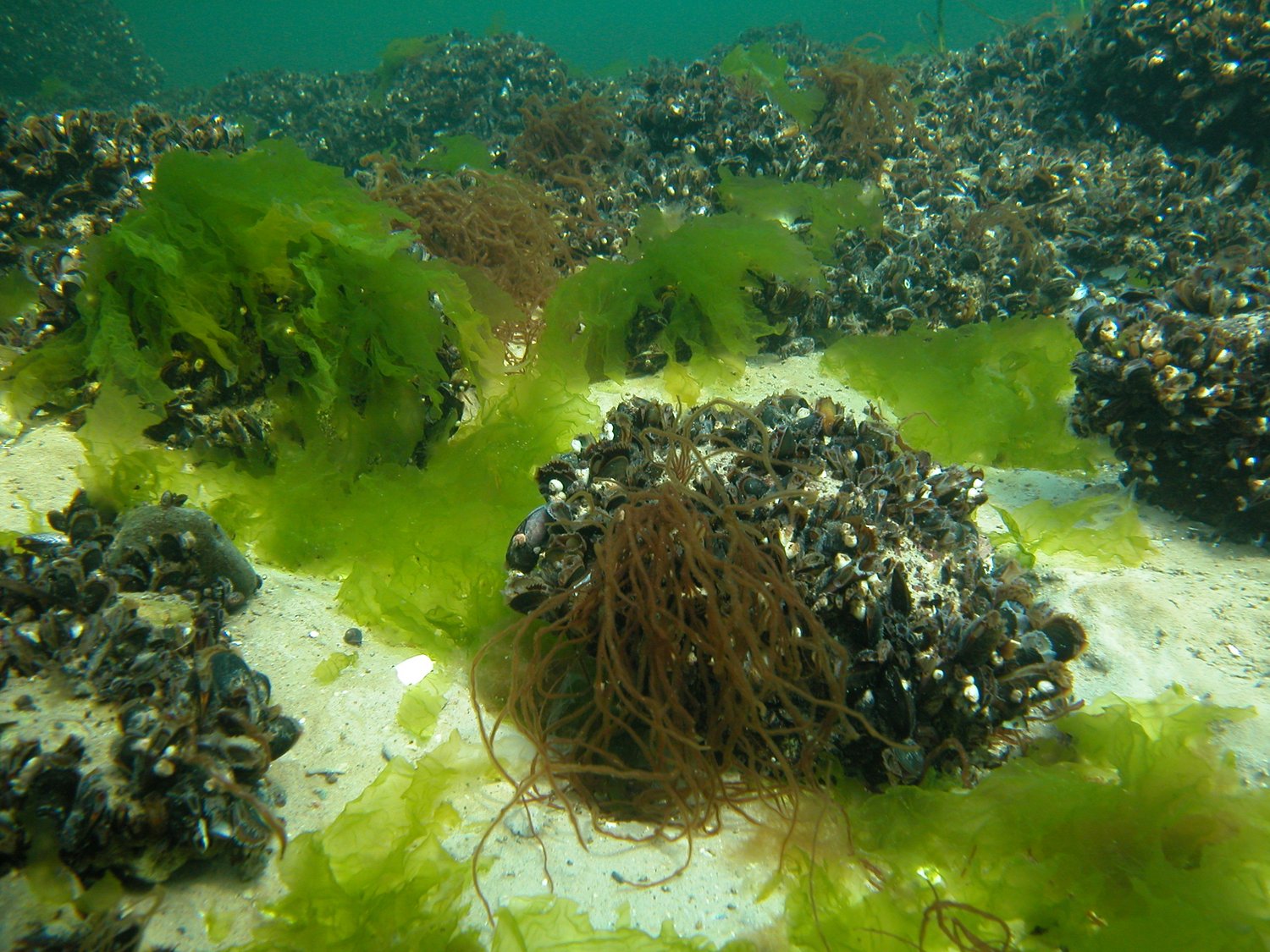
Focus topic: Environmental status of the North Sea and Baltic Sea
The status of Germany's North Sea and Baltic Sea waters is regularly monitored. This is based on the European Marine Strategy Framework Directive (MSFD). It obliges European coastal states such as Germany to develop a so-called marine strategy with the help of which a good status of the marine environment is to be achieved or maintained. The assessment of the environmental status is summarised in this focus.
There is still a lack of effective measures for the protection and the sustainable use of the oceans.
This affects the prevention of increasing pollution from plastic waste and the input of harmful substances and nutrients. Furthermore, there is also a need for clear guidelines on the sustainable use of fisheries and aquaculture as well as the removal of marine ressources, the construction of energy generation plants, shipping and tourism. The increasing pressure on the oceans is intensified by the effects of climate change: sea levels are rising, the water temperature is increasing and becomes more acidic, while the oxygen content is decreasing. As the ecological situation deteriorates, the perspective for a long-term and sustainable use of marine resources becomes more difficult.
However, there are initiatives to reverse the trend not only at a national level, but also worldwide. The protection of biodiversity and marine nature is being negotiated in international agreements, as is the reduction of plastic waste. The German government is developing a marine strategy with the involvement of all ministries and many social groups. The common goal is to halt the loss of marine biodiversity and secure key ecosystem functions as a climate regulator, carbon sink, oxygen producer and food resource in the long term. Science-based marine management plays a central role in this.



